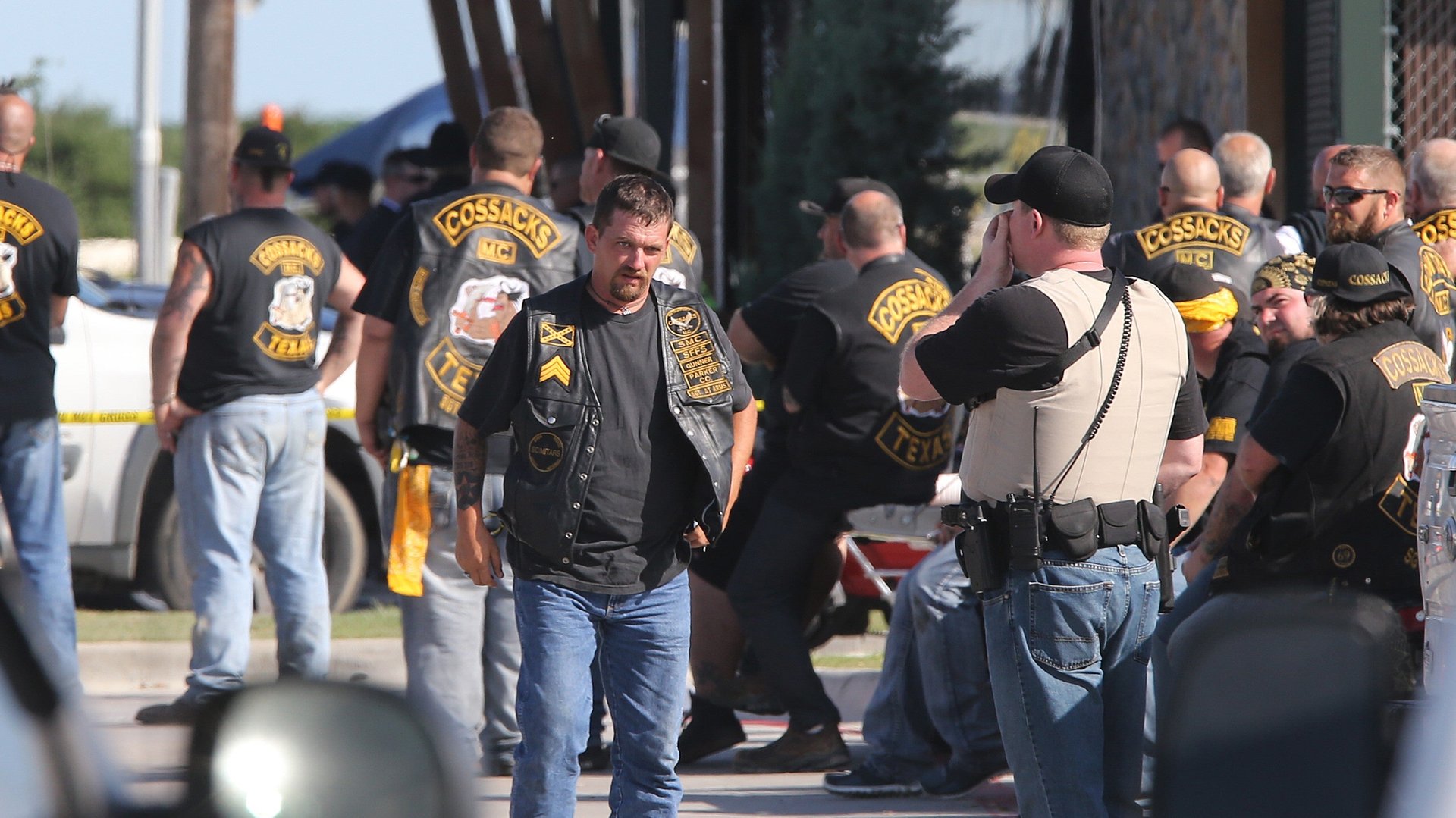Rushing to call the Waco biker gang members “thugs” is not what we mean by racial equality
Somehow an immensely necessary and nuanced public conversation about racial bias and state violence in America today has been reduced to an overly simplistic fight over the word “thug.” On some level, I get it. We’re a simplistic society. We made Kim Kardashian famous. And debates over the use of the word thug, especially in the media, may be a useful way to encapsulate or demonstrate patterns of bias more broadly. Yet if we turn a centuries-long struggle for racial equality into a mere debate over linguistics, we’re missing the point.


Somehow an immensely necessary and nuanced public conversation about racial bias and state violence in America today has been reduced to an overly simplistic fight over the word “thug.” On some level, I get it. We’re a simplistic society. We made Kim Kardashian famous. And debates over the use of the word thug, especially in the media, may be a useful way to encapsulate or demonstrate patterns of bias more broadly. Yet if we turn a centuries-long struggle for racial equality into a mere debate over linguistics, we’re missing the point.
Words rely on context and in this case, the context is what matters more. The trouble with various biased words throughout the history of language hasn’t been some inherent bias in the words but rather that the words have accompanied vast discrepancies in the ways those so labeled are treated. “Words aren’t the problem,” says Malkia Cyril of the Center for Media Justice. “What they signify is.” Cyril gives the example of the n-word—“hundreds of years of slavery, black codes, and Jim Crow segregation” made the n-word a signifier of white power and white violence against the black community. The problem wasn’t inherent in the word, it was the way the word was used (and is too-often still used) to reference and rationalize an unjust system of power and oppression.
Post slavery and Jim Crow segregation, argues Cyril, “mass incarceration has become the racialized system through which white power is codified”—so “super-predator” replaced the n-word. And today that code word is “thug.”
In the wake of intense criticism of how members of the media and others labeled protesters in Ferguson and Baltimore “thugs” and argued that such labeling was a racially coded dog whistle, people almost tripped over themselves to call the biker gang members in the Waco, Texas, shooting “thugs” as well. Arguably we could take some glimmer of hope from this; the critique of racial bias in general and the biased use of language in particular struck a chord and everyone was itching to prove their own lack of bias accordingly. But rushing to call a group of mostly white bikers “thugs” doesn’t absolve any of us of our unconscious bias, nor suddenly prove the system itself is beyond reproach.
It is nice if we’re now all suddenly thinking a bit harder about how we use language with respect to the black community. Now we need to think way harder about how we use police force and mass incarceration and school suspensions and economic discrimination and other forms of state violence with respect to the black community. That’s the infinitely deeper issue.
“I suspect most people use ‘thug’ in a racialized way, some use it in a ‘fair’ way and still others use it as a psychological means to reclaim hurtful words and make them work for the victim,” says activist Max Rameau, of the Positive Action Center. But what really matters is the disparate impact in how communities are treated. A teenager who allegedly broke a police car window in during riots in Baltimore was held on $500,000 bail—even after the kid turned himself in to police. Meanwhile the bikers in Texas involved in a daytime gunfight in which nine people died and 170 were arrested on charges including first-degree murder and engaging in organized crime? Three of the bikers had their bail reduced to between $20,000 and $50,000 and were released.
This wildly disparate treatment is reflective of a society that inherently sees black and brown men as more threatening and dangerous than white men, a reality that is reflected in language as much as reinforced by it. In a recent study in Colorado, white criminal defendants were least likely to be denied bail and detained prior to trial, received the lowest amounts when bail was set and were more likely to be released on their own recognizance. A study by the federal government found that while black children make up 18 percent of all preschoolers, they are given almost half of all out-of-school suspensions—despite the fact that black kids don’t “act out” more than their white peers.
“The question we have to ask is in what ways are words used to signal dehumanization or dismiss or devalue people,” says Alexis McGill Johnson of the Perception Institute. That underlying, systemic dehumanization is the problem. And that’s what we need to talk a lot more about.